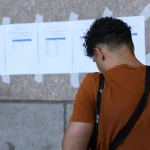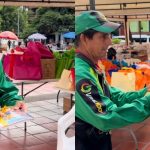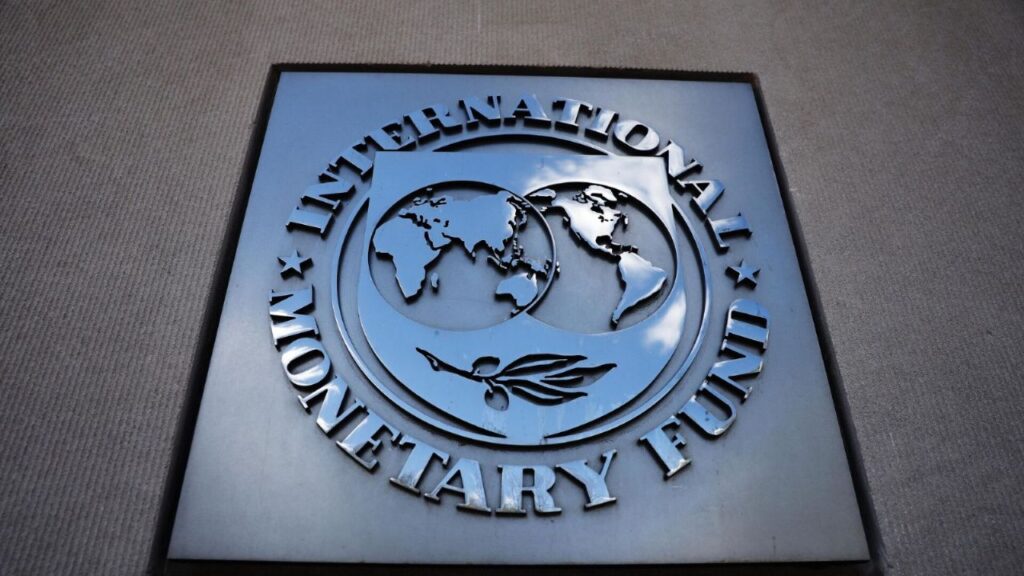Marco Aramayo died of cardiorespiratory arrest in an intensive care unit at the Cotahuma Hospital in La Paz at 5:40 yesterday, but in reality he was already dead a long time ago, from the moment 256 trials were initiated and They were imprisoned for seven years in 56 prisons, without sentence, for having denounced the millionaire embezzlement of the Indigenous Fund, the biggest corruption scandal of the Evo Morales government.
Between September 2013 and February 2015, Aramayo was director of the Indigenous Fund, a budget item created with resources from oil revenues, which financed projects for union and peasant organizations related to the Movement for Socialism. during the Morales administration.
It was he who denounced a millionaire embezzlement in the Indigenous Fund with acts of corruption that ranged from unexecuted projects and unfinished works, and mismanagement of the resources that were transferred to personal accounts of leaders of the Movement Towards Socialism (MAS). Aramayo alerted the Board of Directors of the Fund and the then Minister Nemesia Achacollo, who was the one who authorized the projects and disbursements, of the irregularities, but not only that he was not listened to, but that in April 2015 he was sent to jail.
The dance of millionaire figures speaks of more than 1,200 million Bolivians disbursed in more than 1,000 projects in the accounts of 4,400 MAS leaders benefited by state money that came from oil revenue.
The main defendant in the case was Nemesia Achacollo as president of the Fund’s board of directors and minister who approved projects and disbursements, but she only spent time in detention and in November 2020 her house arrest was lifted.
Instead, against Marco Aramayo, the MAS unleashed a fierce judicial persecution that added up to a literally incredible number of 256 lawsuits against him. Aramayo was subjected to a marathon of judicial hearings in various courts of the country to which he had to go frequently to defend himself for one of the hundreds of criminal accusations.
Interestingly, the Minister of Justice, Iván Lima, considered the main operator of the government in the management of the country’s judicial institutions, criticized the justice for not having taken the necessary measures to preserve the life and health of Aramayo and spoke of the existence of an “inhuman justice”.
His government colleague, Eduardo del Castillo, assures that the Penitentiary Regime spared no effort to save Aramayo’s life.
But Héctor Castellón, Aramayo’s lawyer, said the opposite and stated that it is false that his client received medical attention, and that, on the contrary, the Penitentiary Regime “did not even take care of giving him an aspirin and they were complicit in that mistreatment and the untimely transfers” to take Aramayo to the hearings.
Something similar happened in 2013 to the former president of the National Highway Service, José María Bakovic, who had 72 lawsuits created during the government of Evo Morales and, in one of his many transfers to La Paz to testify at the hearings, suffered hemorrhages from a coronary angioplasty and later died in the clinic.
It is a pity that the government and justice practice this kind of psychological and physical torture with the tactic of charging enormous amounts of lawsuits to a person for revenge or for being a political adversary, until causing their death. Faced with this Bolivian “justice”, the international organizations of the United Nations system that arrive on pompous observation missions say nothing and become accomplices.
Marco Aramayo died of cardiorespiratory arrest in an intensive care unit at the Cotahuma Hospital in La Paz at 5:40 yesterday, but in reality he was already dead a long time ago, from the moment 256 trials were initiated and They were imprisoned for seven years in 56 prisons, without sentence, for having denounced the millionaire embezzlement of the Indigenous Fund, the biggest corruption scandal of the Evo Morales government.
Between September 2013 and February 2015, Aramayo was director of the Indigenous Fund, a budget item created with resources from oil revenues, which financed projects for union and peasant organizations related to the Movement for Socialism. during the Morales administration.
It was he who denounced a millionaire embezzlement in the Indigenous Fund with acts of corruption that ranged from unexecuted projects and unfinished works, and mismanagement of the resources that were transferred to personal accounts of leaders of the Movement Towards Socialism (MAS). Aramayo alerted the Board of Directors of the Fund and the then Minister Nemesia Achacollo, who was the one who authorized the projects and disbursements, of the irregularities, but not only that he was not listened to, but that in April 2015 he was sent to jail.
The dance of millionaire figures speaks of more than 1,200 million Bolivians disbursed in more than 1,000 projects in the accounts of 4,400 MAS leaders benefited by state money that came from oil revenue.
The main defendant in the case was Nemesia Achacollo as president of the Fund’s board of directors and minister who approved projects and disbursements, but she only spent time in detention and in November 2020 her house arrest was lifted.
Instead, against Marco Aramayo, the MAS unleashed a fierce judicial persecution that added up to a literally incredible number of 256 lawsuits against him. Aramayo was subjected to a marathon of judicial hearings in various courts of the country to which he had to go frequently to defend himself for one of the hundreds of criminal accusations.
Interestingly, the Minister of Justice, Iván Lima, considered the main operator of the government in the management of the country’s judicial institutions, criticized the justice for not having taken the necessary measures to preserve the life and health of Aramayo and spoke of the existence of an “inhuman justice”.
His government colleague, Eduardo del Castillo, assures that the Penitentiary Regime spared no effort to save Aramayo’s life.
But Héctor Castellón, Aramayo’s lawyer, said the opposite and stated that it is false that his client received medical attention, and that, on the contrary, the Penitentiary Regime “did not even take care of giving him an aspirin and they were complicit in that mistreatment and the untimely transfers” to take Aramayo to the hearings.
Something similar happened in 2013 to the former president of the National Highway Service, José María Bakovic, who had 72 lawsuits created during the government of Evo Morales and, in one of his many transfers to La Paz to testify at the hearings, suffered hemorrhages from a coronary angioplasty and later died in the clinic.
It is a pity that the government and justice practice this kind of psychological and physical torture with the tactic of charging enormous amounts of lawsuits to a person for revenge or for being a political adversary, until causing their death. Faced with this Bolivian “justice”, the international organizations of the United Nations system that arrive on pompous observation missions say nothing and become accomplices.
;

















